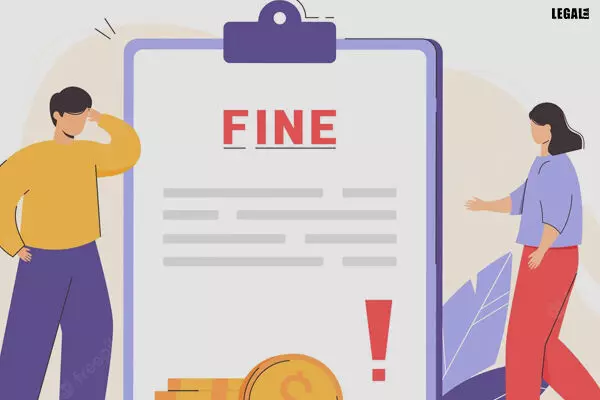- Home
- News
- Articles+
- Aerospace
- Agriculture
- Alternate Dispute Resolution
- Banking and Finance
- Bankruptcy
- Book Review
- Bribery & Corruption
- Commercial Litigation
- Competition Law
- Conference Reports
- Consumer Products
- Contract
- Corporate Governance
- Corporate Law
- Covid-19
- Cryptocurrency
- Cybersecurity
- Data Protection
- Defence
- Digital Economy
- E-commerce
- Employment Law
- Energy and Natural Resources
- Entertainment and Sports Law
- Environmental Law
- FDI
- Food and Beverage
- Health Care
- IBC Diaries
- Insurance Law
- Intellectual Property
- International Law
- Know the Law
- Labour Laws
- Litigation
- Litigation Funding
- Manufacturing
- Mergers & Acquisitions
- NFTs
- Privacy
- Private Equity
- Project Finance
- Real Estate
- Risk and Compliance
- Technology Media and Telecom
- Tributes
- Zoom In
- Take On Board
- In Focus
- Law & Policy and Regulation
- IP & Tech Era
- Viewpoint
- Arbitration & Mediation
- Tax
- Student Corner
- AI
- ESG
- Gaming
- Inclusion & Diversity
- Law Firms
- In-House
- Rankings
- E-Magazine
- Legal Era TV
- Events
- News
- Articles
- Aerospace
- Agriculture
- Alternate Dispute Resolution
- Banking and Finance
- Bankruptcy
- Book Review
- Bribery & Corruption
- Commercial Litigation
- Competition Law
- Conference Reports
- Consumer Products
- Contract
- Corporate Governance
- Corporate Law
- Covid-19
- Cryptocurrency
- Cybersecurity
- Data Protection
- Defence
- Digital Economy
- E-commerce
- Employment Law
- Energy and Natural Resources
- Entertainment and Sports Law
- Environmental Law
- FDI
- Food and Beverage
- Health Care
- IBC Diaries
- Insurance Law
- Intellectual Property
- International Law
- Know the Law
- Labour Laws
- Litigation
- Litigation Funding
- Manufacturing
- Mergers & Acquisitions
- NFTs
- Privacy
- Private Equity
- Project Finance
- Real Estate
- Risk and Compliance
- Technology Media and Telecom
- Tributes
- Zoom In
- Take On Board
- In Focus
- Law & Policy and Regulation
- IP & Tech Era
- Viewpoint
- Arbitration & Mediation
- Tax
- Student Corner
- AI
- ESG
- Gaming
- Inclusion & Diversity
- Law Firms
- In-House
- Rankings
- E-Magazine
- Legal Era TV
- Events
Kerala High Court slaps a fine on litigants producing a fake memo

Kerala High Court slaps a fine on litigants producing a fake memo
The Kerala High Court directs the respondents to deposit Rs.10,000 before the Kerala State Legal Services Authority
The Kerala High Court has imposed a fine on the litigants who had obtained a judgment in their favor by producing a fake memo. It showed the service of notice to the counsel of the opponent.
Justice A Badharudeen was considering a review petition in which the counsel for the petitioners denied the receipt of the notice. This was contrary to a memo produced before the court while it was considering the original petition.
Later, the opponent also conceded that no notice was served. It was, thus, established that a false document was produced before the court to obtain the judgment.
Taking a firm view, the bench imposed a reasonable cost to be deposited with the Kerala State Legal Services Authority.
The court ruled, "Since the judgment was obtained by respondents 1 to 6 by producing a fake memo showing service of notice to Adv. MP Ramnath (counsel for review petitioners), I am inclined to impose a reasonable cost on the respondents. They are directed to deposit Rs.10,000 before the Kerala State Legal Services Authority within 15 days."
The court stated that it would decide later whether any further action needed to be taken against those responsible for producing the fake memo.
The bench also set aside its previous judgment, reiterating the settled law that once it was established that an order was obtained by a successful party by playing fraud, it stood vitiated.
The court held, "Such an order cannot be held legal, valid or in consonance with the law. It is non-existent and non est and cannot be allowed to stand. This is a fundamental principle of law and needs no further elaboration. Therefore, it has been said that a judgment, decree, or order obtained by fraud has to be treated as a nullity, whether by the court of the first instance or by the final court. And it has to be treated as non est by every court, superior or inferior."



